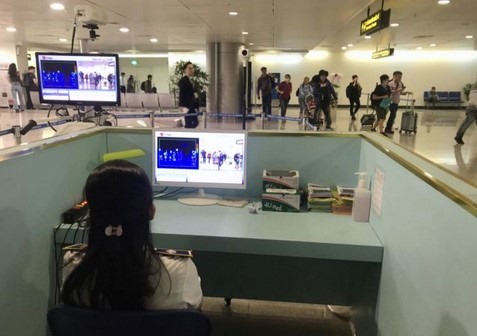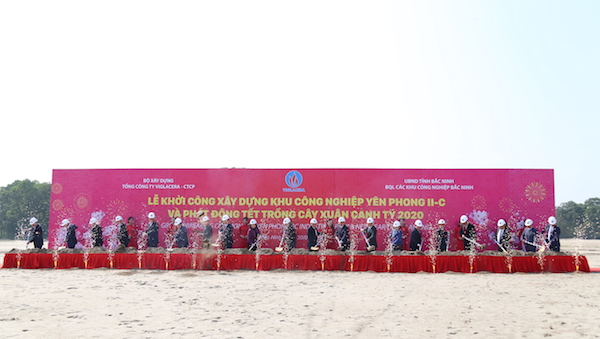
HÀ NỘI — Ministries need to analyse the impact of coronavirus on both international and domestic markets, then deliver short-term and long-term solutions, Minister of Industry and Trade Trần Tuấn Anh said on Friday.
The analysis and solutions must stick with the development of the Vietnamese economy so that the economy increased its competitiveness, quality and productivity, he said.
“It is time we hastened the restructuring of all sectors,” the minister said, adding it was necessary to look for opportunities in other markets, especially those with potential for further penetration.
According to officials at the Ministry of Industry and Trade, the restriction that nations are deploying to prevent a global-scale outbreak of the disease would slow the growth of the retail sector down.
In addition, the number of foreign tourists, especially the Chinese, will fall down in the future while bilateral trade between Viet Nam and China will be jammed.
The border gates between Việt Nam and China in Lạng Sơn Province are being shut down as the Chinese government has taken drastic measures to control and prevent the coronavirus from spreading.
The shutdown is jamming Vietnamese container trucks, which are filled with fruits, vegetables and other short-term agriculture products.
According to the Agency of Foreign Trade, the outbreak of the deadly coronavirus has lowered retail sales in China. In addition, the Chinese government has carried out measures to strictly control the infection, leading to the extensive shutdown of the border gate.
Việt Nam and China had planned to open the border gate in Lạng Sơn Province’s Cao Lộc District on Friday for the continuance of bilateral trade after the Tết (Lunar New Year) holiday. However, the spread of the disease forced Chinese officials to extend the shutdown until February 9.
The Ministry of Industry and Trade’s foreign trade agency has asked logistics firms to help Vietnamese agriculture producers following China’s decision to temporarily stop importing local farm products.
The consumption of agricultural products had fallen in China while trade activities between the two economies was also badly affected, the agency said in a request sent to the Vietnam Logistic Business Association (VLA) on Thursday.
The agency asked the VLA and member companies to pay attention to new developments and assist exporters to store agricultural products while waiting for the border gate to be re-opened. Local firms are also advised to look for alternate consumers in both domestic and overseas markets.
The Ministry of Industry and Trade also asked local companies to keep close watch on trade activities between Việt Nam and China amid new developments of the current event to avoid negative impacts on their business.
The ministry will also work the Ministry of Agriculture and Rural Development to encourage local firms to produce dried products and fruit juice to raise the product value and extend the product expirations.
Harsh time
Some Vietnamese fruit exporters have had a difficult time when the Việt Nam-China border gate is closed.
Nguyễn Thị Hồng Thu, director of fruit export firm Chánh Thu, said its containers full of fruits exported to China, had been returned. The fruits had been either sold very cheaply or processed.
“The company is suffering with high inventory and there is no solution for the situation. We need support from the government agencies, local farmers and producers to share the risk,” Người Lao Động (The Labourers) newspaper cited her as saying.
Nguyễn Đình Tùng, general director of Vina T&T Group, said the extensive shutdown of the border gate between China and Việt Nam clearly dampened all trade activities, especially fruit and plant exports.
Most of the fruits were kept fresh for a maximum of 15 days. Only those with durations of at least 30 days would be stored in the cooler to wait for the re-opening of the border gate, he said.
The border gate could still be closed after February 9 amid fears about the disease and other markets were also restricted to prevent a possible global outbreak, Tùng said.
Therefore, Vietnamese firms should look for alternate destinations for their products, he added. — VNS































